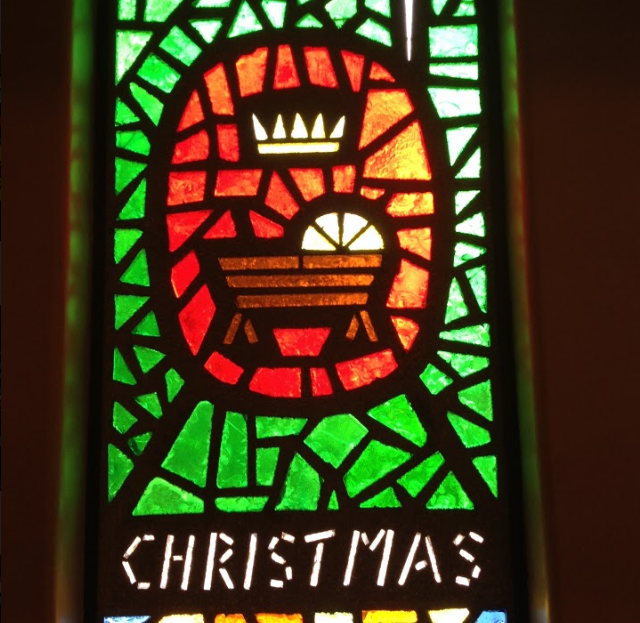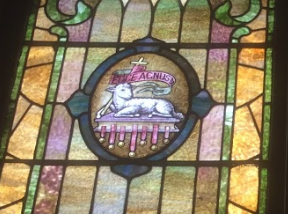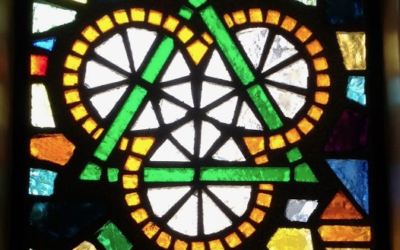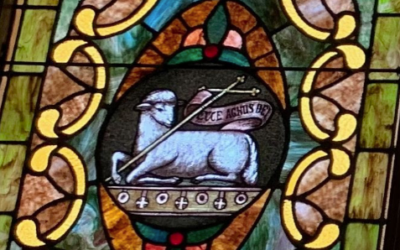Christmas 1 – Christ Came to Be our Substitute in Life and Death
Watch the service

Read the sermon
What Does Christmas Mean?
It makes sense when you think it through. In our lives there are conclusions we reach. And they seem right at the moment. But later on, we realize that there’s a better way. Years ago I worked for in the cafeteria at MLC. And I remember taking a big sheet out of the big convection oven. I remember lifting up the tray and sliding it back into the massive convection oven. And my hand caught the edge of the inside of the oven. And I burnt my hand. And my body was telling me to drop that tray. But I didn’t. This wasn’t the first time I had been carrying hot items around an oven. Even though my hand hurt, I held onto that tray and got it into the oven. I held onto it because I knew that if I dropped the tray it would be so much worse. A whole pan of burning chicken would fall on me. There are those times in our lives when we have to think the matter through. And the knee-jerk reaction at the moment is not the better path. The same is true when it comes to Christmas. On Christmas Eve we have the immense and amazing privilige of speaking about the fact that Jesus was born. But in the weeks that follow after we get to ask what Christmas means for us and all humans. And in God’s word we get to see that what God’s word says about Christmas makes sense when you think it through from our Triune God’s perspective. In Hebrews 2, we read these words: “In bringing many sons and daughters to glory, it was fitting that God, for whom and through whom everything exists, should make the pioneer of their salvation perfect through what he suffered.” (Heb. 2:10 NIV11-GKE)
Notice how the pastor to the Hebrews starts out. He lets us know that it makes sense when you think it through.1 What is it that makes such good sense? It makes sense that the Jesus who started the work of salvation would bring it to its goal.2 And what was the way and tool God would use to make our salvation whole and complete? Jesus would suffer.3 What? We sit back in our pews and scratch our heads. Each of us can say to ourselves that if we’ve learned anything from watching Christmas movies on TV and listening to popular Christmas music on the radio, it’s that Christmas is the opposite of suffering. It’s the time of rest, eggnog, ugly sweater contests and warm fires. What the pastor to the Hebrew people tells makes sense, though, when you think it through. And in the words that follow, we see why: “11 Both the one who makes people holy and those who are made holy are of the same family. So Jesus is not ashamed to call them brothers and sisters. 12 He says, “I will declare your name to my brothers and sisters; in the assembly I will sing your praises.” 13 And again, “I will put my trust in him.” And again he says, “Here am I, and the children God has given me.”” (Heb. 2:11–13 NIV11-GKE)
It makes sense that Jesus would suffer. But notice the added detail of how he would suffer. Notice the words he uses: Family, brothers and sisters, fellow children. There is this amazing preaching to us that the amazing preaching of Christmas is that God, in a wondrous, amazing way is now our family, our brother, and a fellow child of God above. And in the words that follow the pastor to the Hebrews gives us two ways that God taking on our humanity makes sense when you think about it. We read: “14 Since the children have flesh and blood, he too shared in their humanity so that by his death he might break the power of him who holds the power of death—that is, the devil— 15 and free those who all their lives were held in slavery by their fear of death. 16 For surely it is not angels he helps, but Abraham’s descendants. 17 For this reason he had to be made like them, fully human in every way, in order that he might become a merciful and faithful high priest in service to God, and that he might make atonement for the sins of the people.” (Heb. 2:14–17 NIV11-GKE)
Here is where it gets interesting. It makes sense when you think about it. God shared flesh and blood with us. He did this for a real reason. He did this so that he could render useless the one who holds death against us: The Devil. And just how exactly is it that the Devil uses death against us? All throughout our entire lives we live in fear of death. And there is this powerful irony. We know where Christmas leads, don’t we? We know that it leads to Easter where Jesus rose victorious over death. We know that it leads to Jesus’ ascension where he promises to prepare a home and place for us in heaven. And there he will take us. And yet, despite all the promises, we still are afraid. Whether a little or a lot, it’s still there.
But when you have the time to think it through a little, Christmas makes sense. It makes sense that Jesus had to share our humanity. He had to share our humanity so that he could suffer in our place—both at true God and as true man. There’s this amazing beauty in the word that the pastor to the Hebrews uses. It means to cover up and pay for sin with a sacrifice.4 And Jesus is able to do this because he is our flesh and blood. He shares our humanity. What picture would you use from your every day life? There once was a dad riding his bike out with his little girl. She had just learned to ride the bike. And she was happy. There they were on a gravel trail. The gentle wind was in her face. The soft sun was at her back. And nothing could take that smile off her face. Then her front tire rolled over a deeper, sandier part of the trail and she fell. The dad looked back and saw it all. He saw the wind get knocked out of her. He saw her body land on the ground. And more than anything he would have wanted to hit the ground in her place. For she was his daughter—his flesh and blood. He loved her. But he could not.
My friends in Christ, the same truth is there in the heart of our Father above. He loves us so deeply that he sent his son to share our humanity. And now there is this flesh and blood bond between us and God. But there is where the comparison stops. For the dad could do nothing to help the little girl. But our Father in heaven could. He could have his son share our humanity so that, as both true God and man, he could die in our place.
And for us then, notice what the result is. We have hope on our last day. We do not need to fear death. But even if we have fear in our hearts on that last day there still is hope. For Jesus overcame the one who uses the fear of death against us. And it makes sense when you think about it. Jesus had to share our flesh and blood so that we would have hope on our last day. But there’s one last reason he shared our humanity: “Because he himself suffered when he was tempted, he is able to help those who are being tempted.” (Heb. 2:18 NIV11-GKE)
Jesus shared our humanity so that he could suffer. That gives us hope on our last day. But notice where these words take us. This also gives us hope every day. When we speak of Jesus suffering, we usually think of outside and the obvious. We picture Jesus upon the cross extended. But these words aren’t outside and obvious. They are inside and subtle. They are temptations. All throughout our entire long lives we fear the death at the end of our lives. But we carry the constant burden of temptation day after day and every day. What help is there for us? And for a moment, let’s forget about our last day. What about every leading up to our last day? What about our countless temptations that weigh us down—especially those we give into?
Notice the encouraging words we hear here. Jesus shared our flesh and blood. And so, the subtle, secret temptations here on the inside Jesus knows about and Jesus suffered in our place. But where we fall and fail, Jesus did not. So then we are able to cling to him. we are able to cling to him in the midst of our struggle knowing that he is there to give us strength. And we are able to cling to him if there may be times we give into that temptation. For, when our Father looks at us, since Jesus shares our humanity, our Father sees all the times Jesus struggled as one of us in our place but he did not fail or fall.
So my friends in Christ, all of this makes sense, when you think about it. Christmas is more than eggnog and warm fires. The pastor to the Hebrews gets and the heart of Christmas. Jesus shared our flesh and blood. And he did this so that he could suffer in our place. This gives us hope on our last day. This gives us help every day. Amen.
1 “ⲉⲡⲣⲉⲡⲉⲛ” (Heb. 2:10 GNT-ALEX)
2 “ⲧⲉⲗⲉⲓⲱⲥⲁⲓ” (Heb. 2:10 GNT-ALEX)
3 “ⲇⲓⲁⲡⲁⲑⲏⲙⲁⲧⲱ̅” (Heb. 2:10 GNT-ALEX)
4 “ⲉⲓⲗⲁⲥⲕⲉⲥⲑⲉ” (Heb. 2:17 GNT-ALEX)



